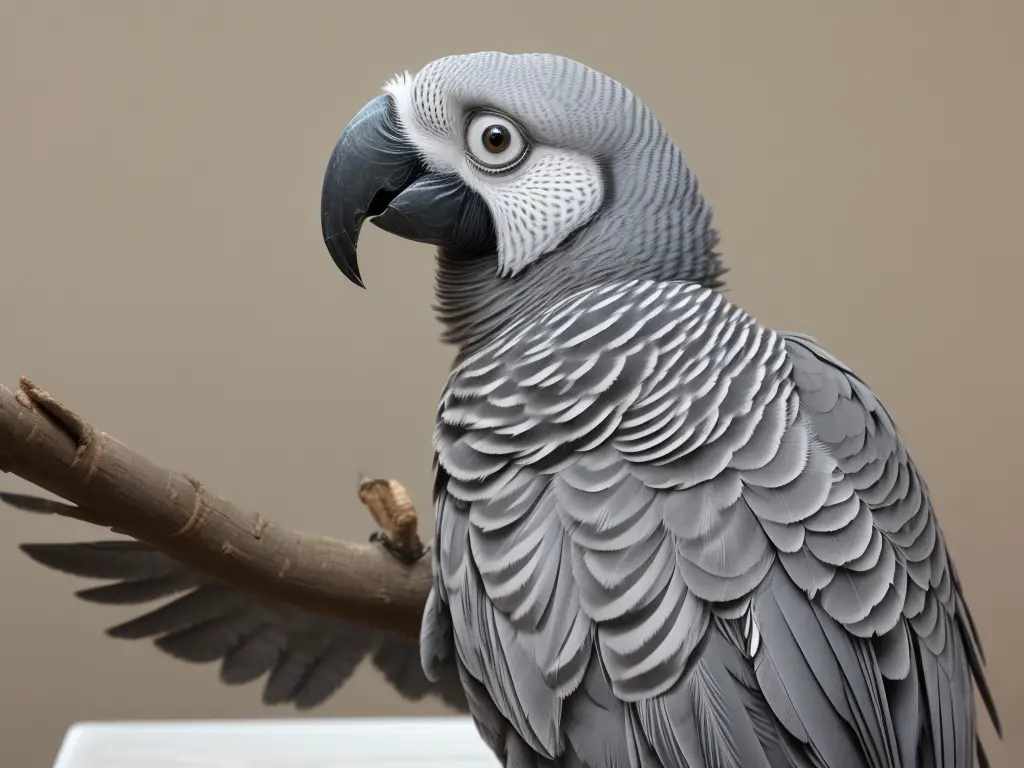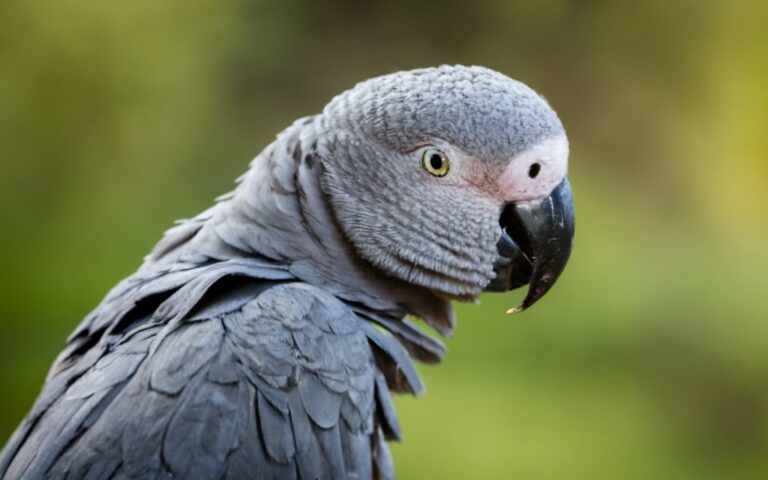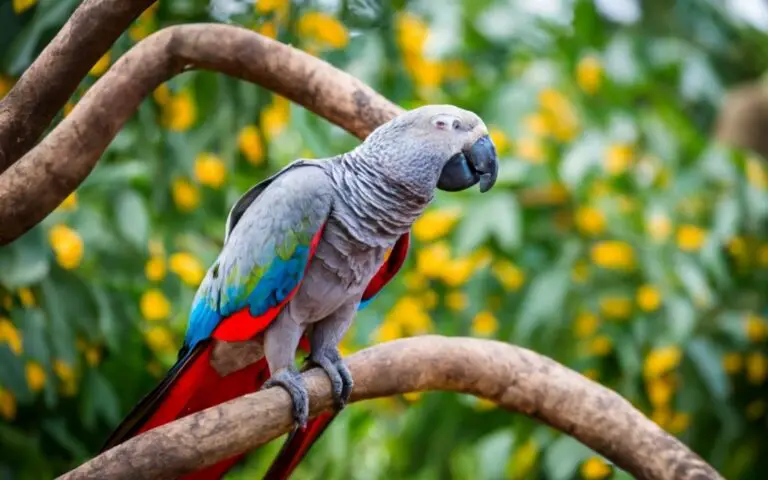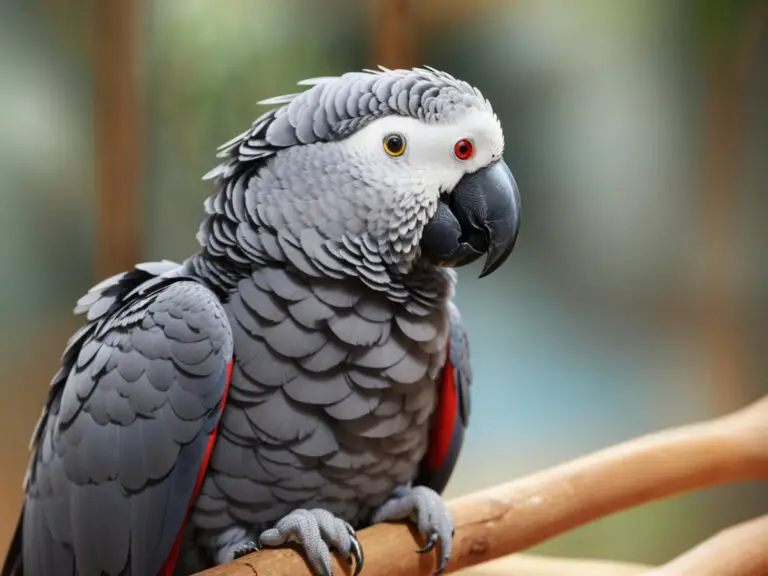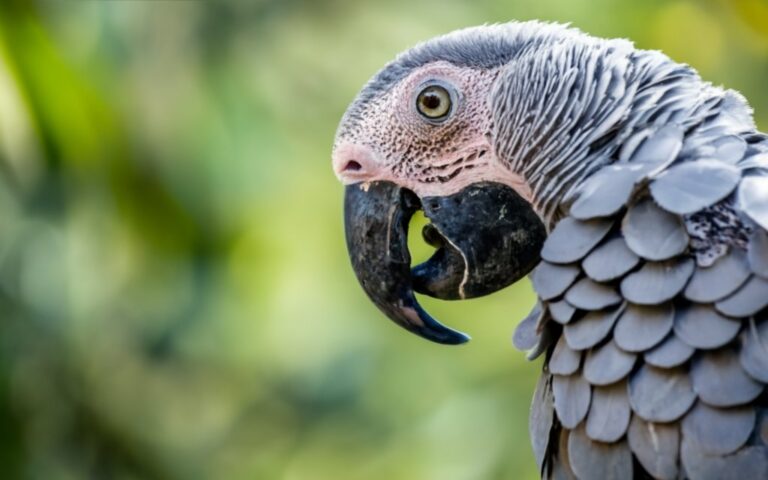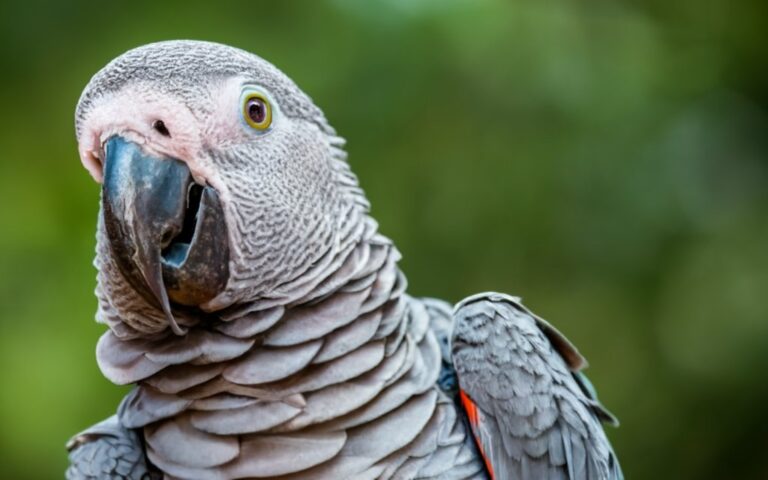Can African Grey Parrots Eat Peanut Butter?
Key Takeaways:
- African grey parrots can eat peanut butter in moderation, as long as it does not contain xylitol or any other harmful additives.
- Peanut butter can be a good source of healthy fats and protein for African grey parrots, but should not be a staple in their diet.
- Ensure that the peanut butter is free from added sugar, salt, and preservatives before offering it to your African grey parrot.
- It is essential to introduce peanut butter gradually to monitor any potential allergic reactions or digestive issues in African grey parrots.
Imagine a world where the delightful chatter of your African Grey Parrot is accompanied by the satisfying sound of them enjoying a snack. But before you dollop some peanut butter onto their favorite perch, you need to know if it’s safe for them.
That’s what we’re here to discuss today.
Can African Grey Parrots eat peanut butter? In this article, we’ll delve into the fascinating world of their diet, explore the nutritional requirements of these magnificent creatures, and finally answer the burning question of whether or not peanut butter should be on their menu.
So, let’s dive in and discover the truth about feeding peanut butter to African Grey Parrots.
| Question | Answer |
|---|---|
| Can African Grey parrots eat peanut butter? | Yes, African Grey parrots can eat peanut butter, but it should be given in moderation as an occasional treat. Peanut butter should not be the main part of their diet, as it is high in fat and can lead to obesity if consumed in excess. It is important to use natural, unsweetened, and unsalted peanut butter, without any additives or preservatives. Additionally, some parrots may be allergic to peanuts, so it is essential to observe their reaction after consuming it for the first time. |
Understanding the Diet of African Grey Parrots
African Grey Parrots have a specific diet that consists of a variety of fruits, vegetables, seeds, and nuts. Understanding their natural diet is important for their overall health and well-being in captivity.
Natural diet of African Grey Parrots in the wild
The natural diet of African Grey Parrots in the wild primarily consists of fruits, nuts, seeds, and vegetation. They forage for a variety of foods including berries, figs, palm nuts, and leafy greens.
They may also eat insects and their larvae for added protein.
A diverse and balanced diet is essential for their overall health and well-being.
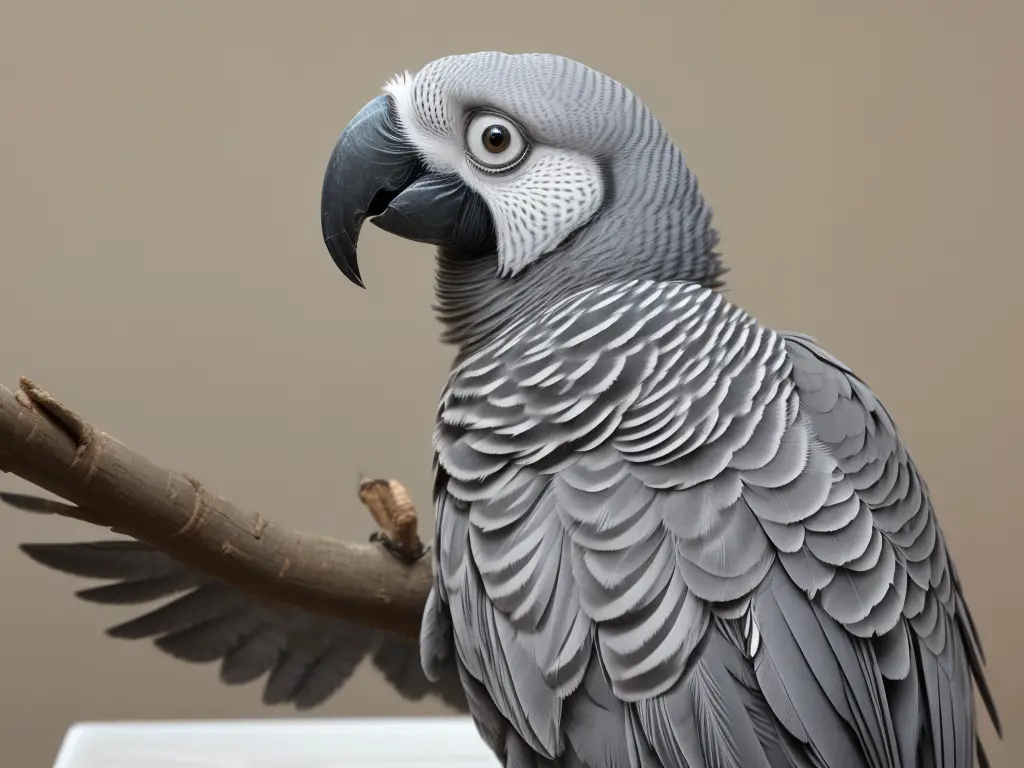
Nutritional requirements of African Grey Parrots in captivity
African Grey Parrots in captivity require a balanced diet consisting of high-quality pellets, fresh fruits, vegetables, seeds, nuts, and grains.
These foods provide essential nutrients like protein, vitamins, minerals, and healthy fats.
Offering a variety of foods is important to meet their nutritional needs and promote overall health.
It’s crucial to avoid sugary, processed, and toxic foods to ensure their well-being.
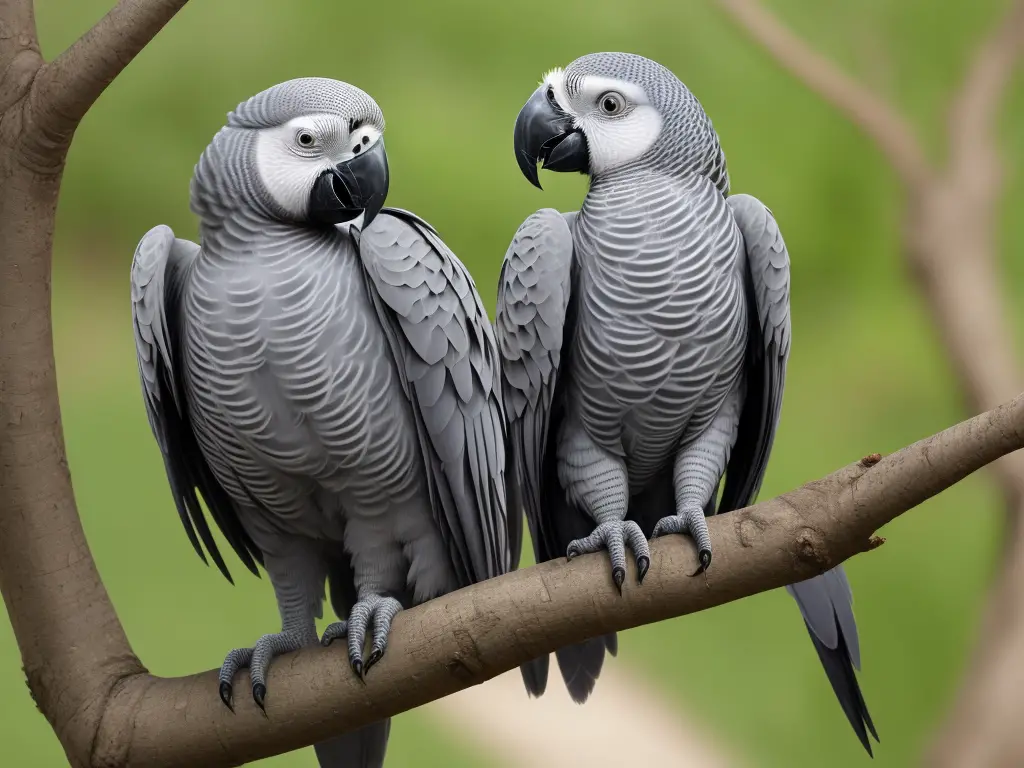
Can African Grey Parrots Eat Peanut Butter?
African Grey Parrots can eat peanut butter, but it should be given in moderation and as an occasional treat due to its high fat content.
Overview of peanut butter as a food
Peanut butter is a popular food made from ground peanuts. It is rich in protein, healthy fats, and essential nutrients like vitamin E and magnesium.
However, it is also high in calories and should be consumed in moderation.
For African Grey Parrots, peanut butter should be avoided due to potential hazards, such as choking and high salt content.
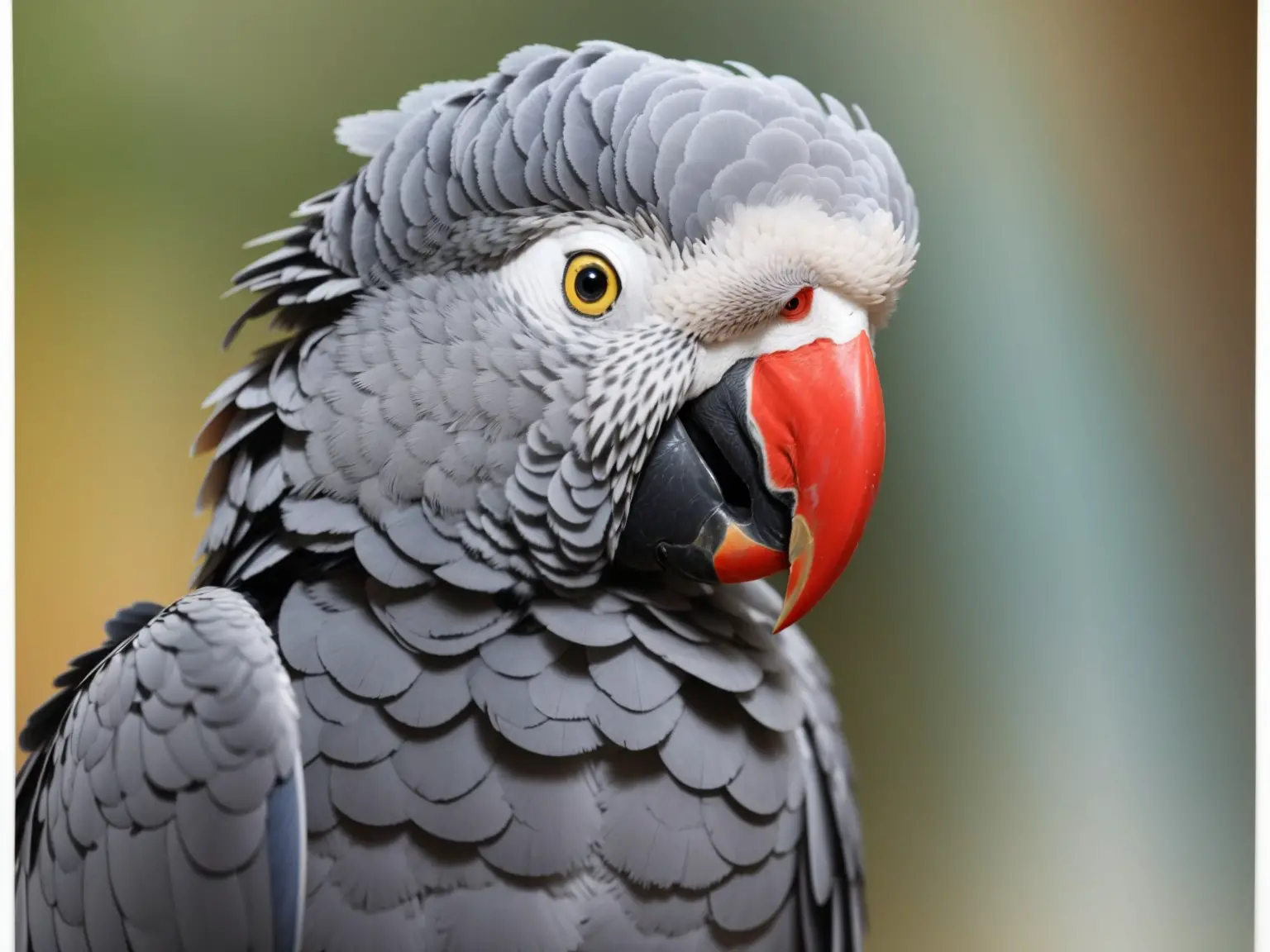
Hazards of feeding peanut butter to birds
Feeding peanut butter to birds, including African Grey Parrots, can be hazardous.
Peanut butter can be sticky and pose a choking hazard.
It may also contain additives like salt or sugar, which are not suitable for birds.
Furthermore, the consistency can make it difficult for birds to digest properly, leading to digestive issues.
It’s best to avoid feeding peanut butter to birds and stick to their natural diet for their health and well-being.
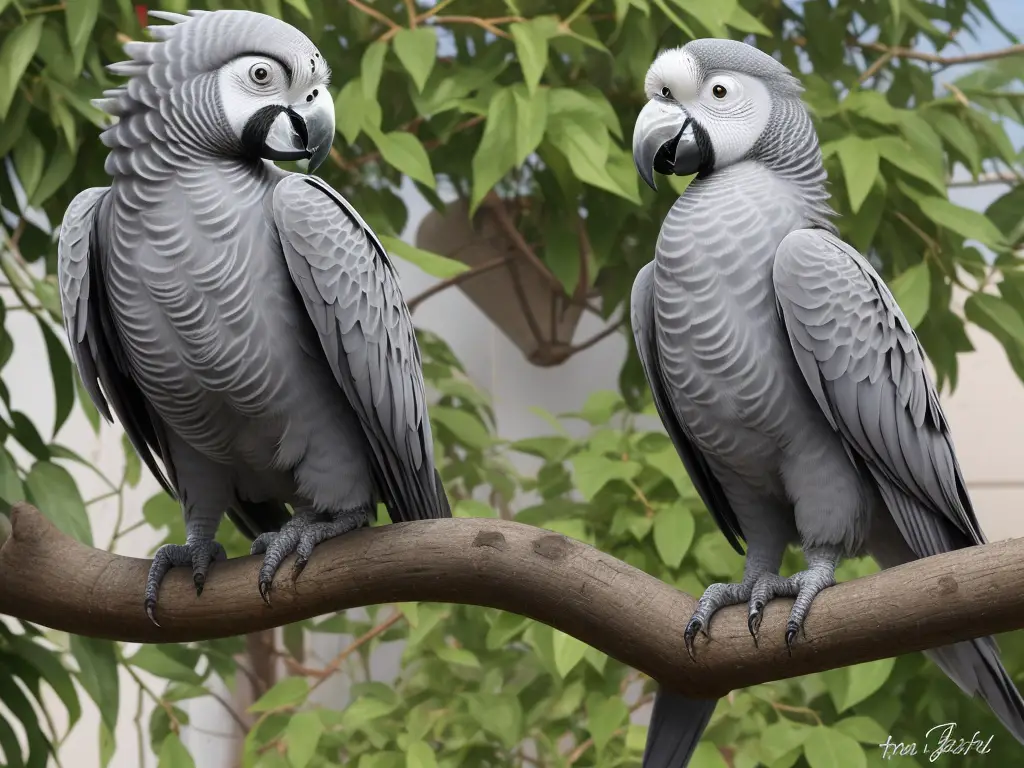
Can African Grey Parrots safely consume peanut butter?
No, it is not safe for African Grey Parrots to consume peanut butter.
Peanut butter can be a choking hazard and contains high levels of fat, salt, and sugar, which can be harmful to their health.
Stick to their natural diet to ensure their well-being.
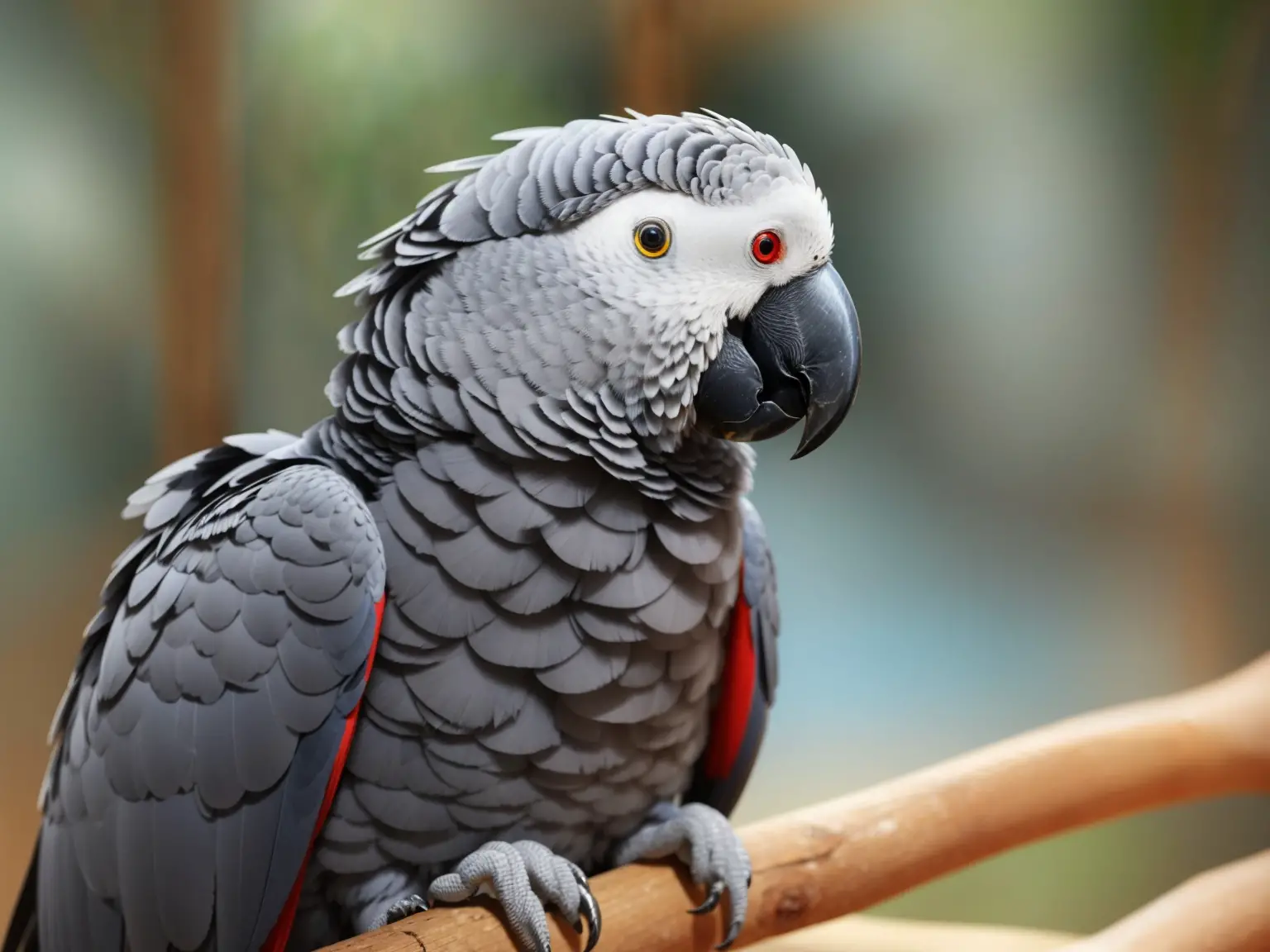
Suitable Foods for African Grey Parrots
African Grey Parrots can safely enjoy a variety of fruits, vegetables, seeds, nuts, and grains in their diet.
Fruits and vegetables that are beneficial for their health
African Grey Parrots can benefit from a variety of fruits and vegetables in their diet.
Some nutritious options include apples, oranges, bananas, grapes, berries, carrots, broccoli, spinach, and sweet potatoes.
These foods provide essential vitamins, minerals, and dietary fiber to support their overall health and well-being.
Seeds, nuts, and grains that can be included in their diet
African Grey Parrots can benefit from including seeds, nuts, and grains in their diet. Some suitable options include sunflower seeds, pumpkin seeds, flaxseeds, almonds, walnuts, pecans, peanuts (in moderation), and whole grains like quinoa and brown rice.
These provide essential nutrients and can be a great addition to their balanced diet.
Importance of providing a variety in their diet
Providing a variety of foods is crucial for the health and well-being of African Grey Parrots. Varied diets prevent boredom, ensure a wide range of nutrients, and mimic their natural foraging behaviors.
Including different fruits, vegetables, seeds, nuts, and grains in their diet promotes optimal nutrition and overall happiness.
Training African Grey Parrots to Follow a Proper Diet
Tips for introducing new foods to African Grey Parrots: Start with small amounts of new foods and gradually increase them, offering a variety of fresh fruits, vegetables, and grains to encourage a balanced diet.
When it comes to training African Grey Parrots to follow a proper diet, it’s important to focus on introducing new foods, providing mental stimulation through foraging, establishing a feeding routine, and controlling portion sizes.
Tips for introducing new foods to African Grey Parrots
To introduce new foods to African Grey Parrots, start by offering small portions alongside their regular diet. Gradually increase the amount over time.
You can also try different presentation methods, such as chopping or shredding, to make it more appealing.
Patience is key during the process, as it may take time for your parrot to accept new foods. Remember to provide a variety of nutritious options to ensure a balanced diet.
The concept of foraging and mental stimulation through food
Foraging and mental stimulation through food is an important concept for African Grey Parrots.
It involves providing them with opportunities to search, explore, and work for their food, mimicking their natural behavior in the wild.
This can be done by using foraging toys or hiding food in different locations.
It keeps them mentally engaged and prevents boredom, leading to a healthier, happier parrot.
Establishing a feeding routine and portion control
Establishing a feeding routine and portion control is important for the health and well-being of African Grey Parrots. It helps to regulate their food intake and prevent overeating.
To establish a routine, feed your parrot at the same time each day.
Offer a variety of foods and monitor their portion sizes to ensure they’re getting the right amount of nutrients without excessive calories. It’s also helpful to provide mental stimulation through food, such as foraging toys, to keep them engaged during mealtime.
Frequently Asked Questions
Can African Grey Parrots eat chocolate or avocado?
No, African Grey Parrots should not eat chocolate or avocado. Chocolate contains theobromine, which is toxic to birds.
Avocados contain persin, which can also be harmful to them.
It’s best to avoid these foods to keep your parrot safe and healthy.
Is it safe to give African Grey Parrots table scraps?
Table scraps are not recommended for African Grey Parrots.
They have specific nutritional requirements that may not be met by human food.
Table scraps can be high in salt, fat, and spices, which can be harmful to parrots.
It’s best to provide them with a balanced and species-appropriate diet.
Can African Grey Parrots eat processed or sugary foods?
African Grey Parrots should not be fed with processed or sugary foods. These types of foods can be harmful to their health and can lead to various health issues such as obesity, diabetes, and digestive problems.
It is important to provide them with a balanced and nutritious diet consisting of fresh fruits, vegetables, seeds, nuts, and grains to meet their dietary requirements and keep them healthy.
Are there any specific foods that African Grey Parrots should avoid?
Yes, there are certain foods that African Grey Parrots should avoid.
These include toxic foods like chocolate and avocado.
Additionally, processed or sugary foods are not suitable for their diet.
It’s important to avoid giving them table scraps since they may contain ingredients harmful to them.
Final Verdict
While peanut butter may be a popular and tasty treat for humans, it is not suitable for African Grey Parrots.
The high fat content, potential for contamination, and risk of choking make it a hazardous choice as a food for these birds.
Instead, it is important to focus on providing a balanced and diverse diet that meets their nutritional needs.
By offering a variety of safe and nutritious foods, such as fruits, vegetables, seeds, nuts, and grains, we can ensure the health and well-being of these magnificent parrots.
Let’s prioritize the well-being of our African Grey Parrots by offering them a diet that supports their long and healthy lives.

